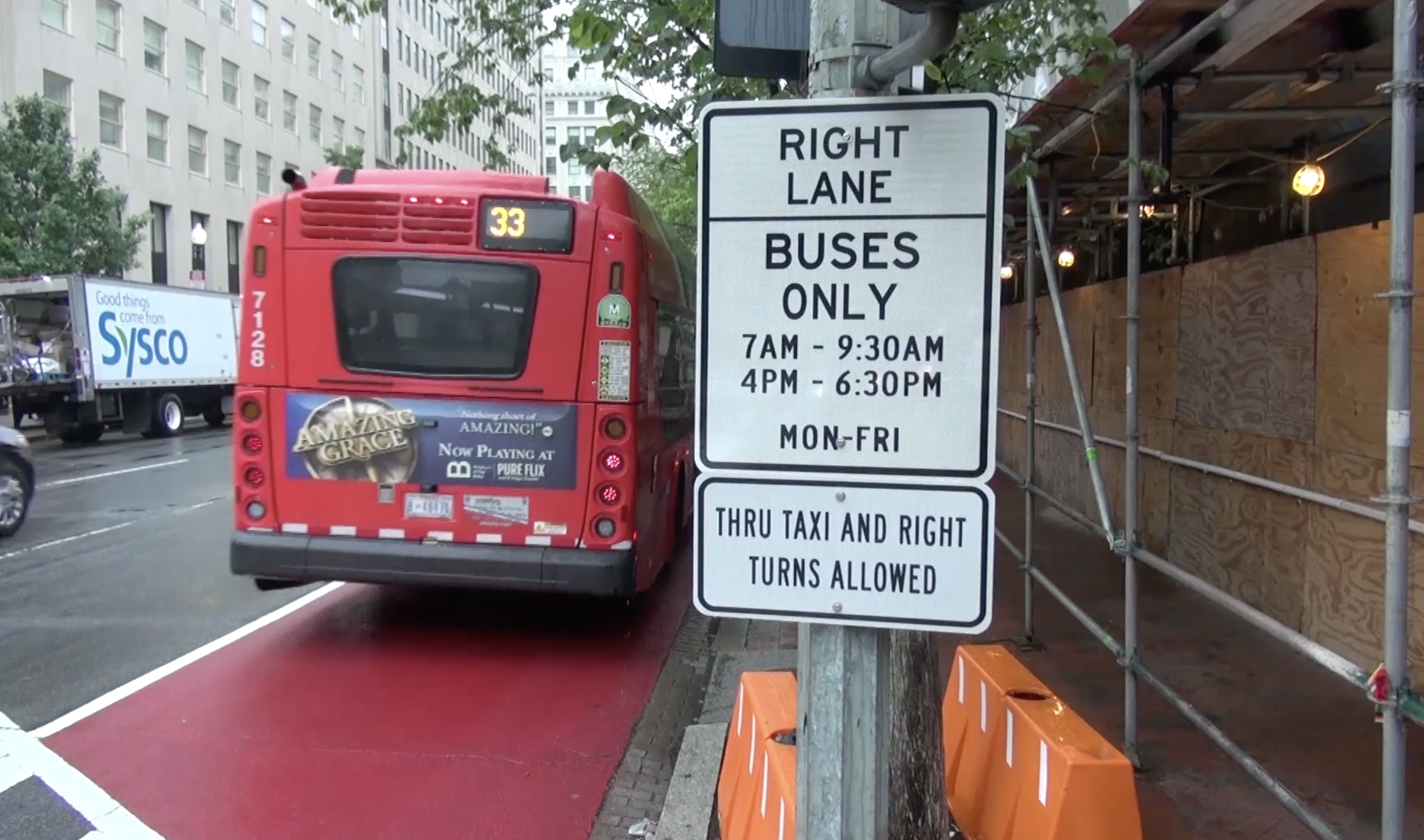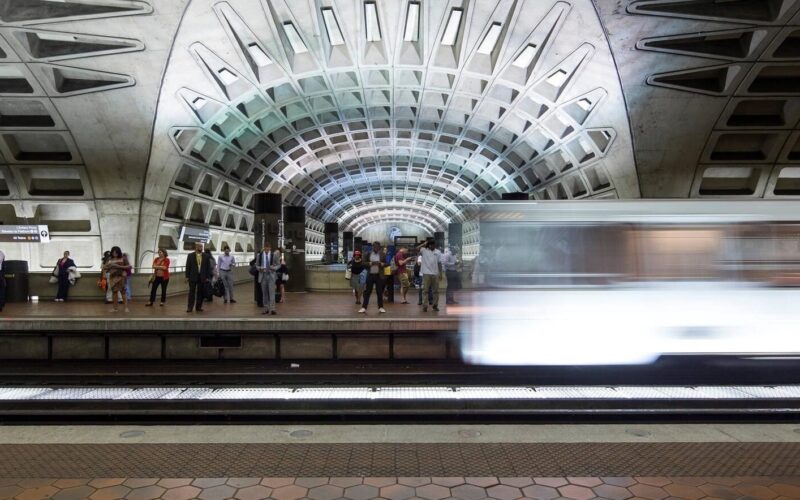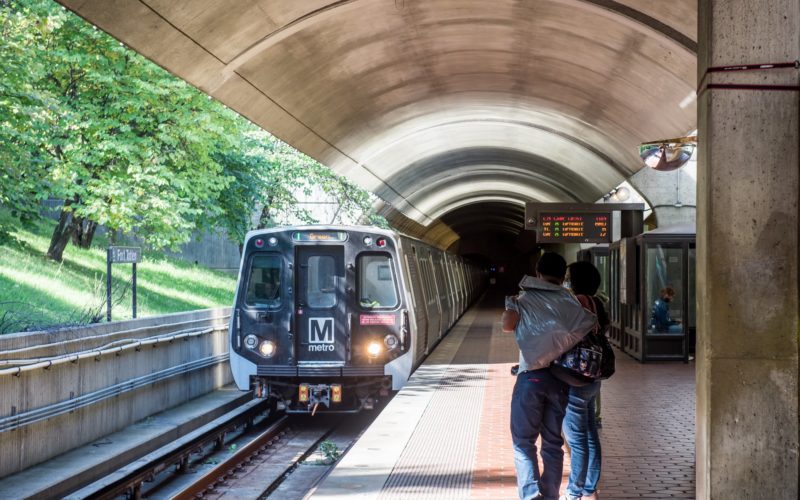
Like many large American cities, Washington is losing bus ridership as transit speeds slow and service falters. DC needs a bus turnaround, and you couldn’t pick a better place to start than H Street and I Street downtown.
These are two of DC’s busiest bus corridors, peaking at 70 buses an hour and serving routes that carry 20% of MetroBus ridership. But buses on these streets travel as slowly as 3.6 mph.
Enter the DC Department of Transportation’s red bus lanes.
This summer, DDOT is testing out a new approach to quickly implement bus priority treatments at low cost. The red lanes clear space for buses during peak hours on several blocks congested with car traffic. They cost only $10,000 but will speed trips for tens of thousands of riders.
In this Streetfilm, five members of the City Council joined DDOT staff and advocates with Greater Greater Washington to ride the bus lanes and experience the difference they make.
The H and I Street lanes are the latest entry in the growing practice of “tactical transit.” Though still relatively rare, a number of US transit agencies are testing out nimble implementation methods, using low-cost materials like paint and signage to increase the speed and reliability of bus trips practically in a matter of days.
In a city where other bus lanes have taken nearly a decade to implement, this project signals a much quicker way to deliver better service for bus riders and should serve as a model for many other bus priority improvements to come.
 On the Brink: Will WMATA’s Progress Be Erased by 2024?
On the Brink: Will WMATA’s Progress Be Erased by 2024?
The experience of being a WMATA rider has substantially improved over the last 18 months, thanks to changes the agency has made like adding off-peak service and simplifying fares. Things are about to get even better with the launch of all-door boarding later this fall, overnight bus service on some lines starting in December, and an ambitious plan to redesign the Metrobus network. But all of this could go away by July 1, 2024.
Read More What’s Going on With Transit Service at the Seven Highest Ridership U.S. Cities? DC Edition
What’s Going on With Transit Service at the Seven Highest Ridership U.S. Cities? DC Edition
Mechanical problems with the 7000-series train cars and lapsed rail operator certifications have caused rail service levels on WMATA to plummet, but the agency is running 100% of pre-pandemic bus service.
Read More